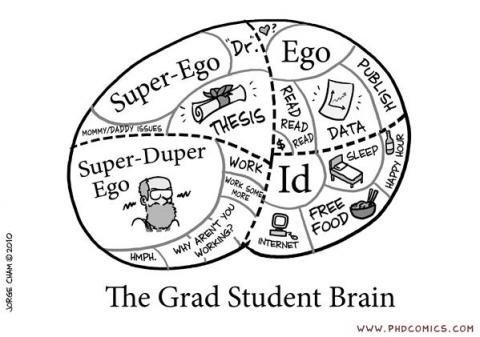Changing Graduate Programs: Is It Doable?
We’re not going to sugar-coat it. Unlike changing your major as an undergrad, changing graduate programs can be a challenge—and it’s really not encouraged.
That said, why spend two or more years of your life pursuing a graduate degree that you’re not passionate about? The whole point of a graduate education is learning more about the one subject that excites and inspires you. If you’re not in a program that does that for you (or perhaps you’ve realized your skill set doesn’t quite match the program), and you’ve realized that another master’s or doctoral degree path does, then you should consider switching graduate programs.
Be warned, however, that you will encounter some difficulties along the way. If you’re considering switching graduate programs, here’s what you need to know.
Changing graduate programs is not like changing your undergrad major
You can’t just walk over to your student support office and declare you’re changing master’s programs or doctoral programs after you’re already enrolled at the University. You have to apply to the program you want to be in, submit new application materials (including new letters of reference that speak to your potential for success in a different program), and then that program and the Graduate School have to decide whether to admit you.
Graduate programs are highly specialized, so each one can have specific admission requirements that you’ll need to fulfill in order to apply. For example, if you’re changing master’s programs from the MBA program to a computer science program, you’ll probably have to take the GRE even though you may have already taken the GMAT. If you’re changing from English to the MBA program, you may need to take “leveling” courses in order to meet all of the undergraduate course requirements in business to be successful in graduate coursework. And in some fields, you may even need an entirely separate bachelor’s degree. So, research the requirements and the cost.
Before you decide that switching graduate programs is a good idea, talk to your current graduate coordinator and the graduate coordinator in the program where you want to be. They can help you determine the best course of action.

You’ll lose the course credit you’ve earned so far
When you are changing graduate programs, you’ll likely be kissing any graduate credits you’ve earned so far goodbye. Credits do not often transfer from program to program, so you’ll be back at square one if you enroll in a new graduate program. If it’s a related field of study, credits might apply as an elective course. You’ll want to talk with the graduate coordinator about courses taken that might fit into your new curriculum.
In the grand scheme of things, it’s not an enormous credit loss if you’re in your first semester of grad school and decide to change to a different program. If you decide early on that what you’re studying in your graduate program is not your passion (and you know a different program will be a better fit), then you should definitely go for it.
However, if you’re beyond your first couple of semesters, you may want to evaluate whether you really want to switch programs or if you’re just burnt out. It might be worth it also just to finish the degree you’ve already started before switching to another program.
You may also lose your assistantship
If your graduate assistantship is tied to your program, you may not be able to keep it. You’ll have to talk to your graduate coordinator about funding availability.
There are other options
There are other ways to change your direction without completely switching graduate programs and negating the hard work you’ve put in so far. For example, you’re often able to change concentrations within your graduate program. Earning your EdD in Educational Leadership? You might be able to switch from the K-12 concentration to the exceptional learners leadership education concentration, because there is some crossover in the curricula. Your timeline to graduation may get a little bit longer, but that’s worth it if you’re actually studying and researching what you want to pursue as a career.
Be warned that changing concentrations isn’t possible in all disciplines, like engineering and nursing. Because mechanical, petroleum, chemical, electrical, and civil engineering are all such specialized disciplines, for example, making the switch from one to another is not that simple--you’ll have to go through the admission process. Again, the graduate coordinators are your best resource to help you figure out your options.
You could also explore whether you’re close enough to finish with a different degree. For example, if you’re in a doctoral program, could potentially fulfill the requirements for the master’s degree? If you’re a master’s program, could you exit with a graduate certificate in your field?
So, should you switch?
If you are in a graduate program and realize that it really isn’t your passion and it doesn’t excite and inspire you, then by all means consider switching programs—especially early on. Just remember that changing graduate programs may affect the time it takes to get your degree and often requires going through the admission process again. The most important thing to remember is that you should always talk to the graduate coordinators and your mentors before making any decision and, ultimately, follow your passion.
Learn more about graduate programs at UL Lafayette >
